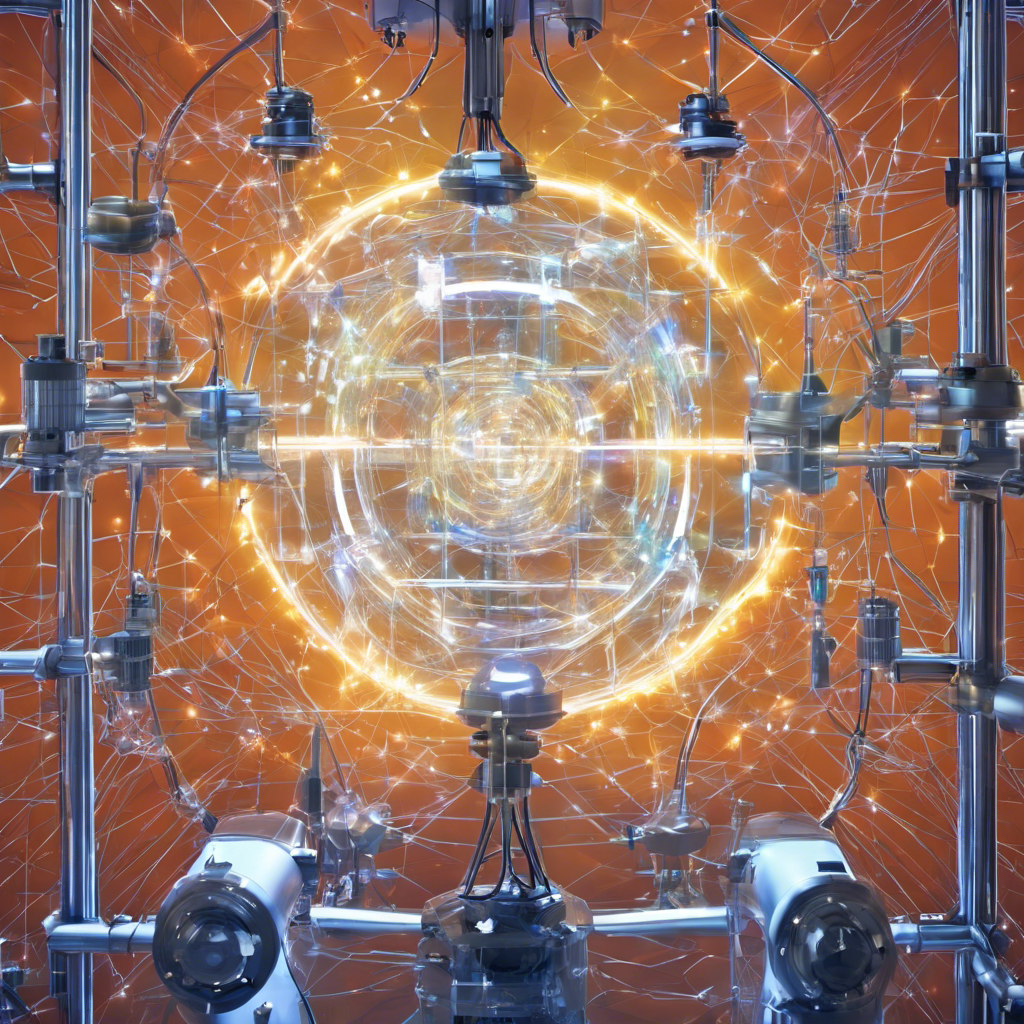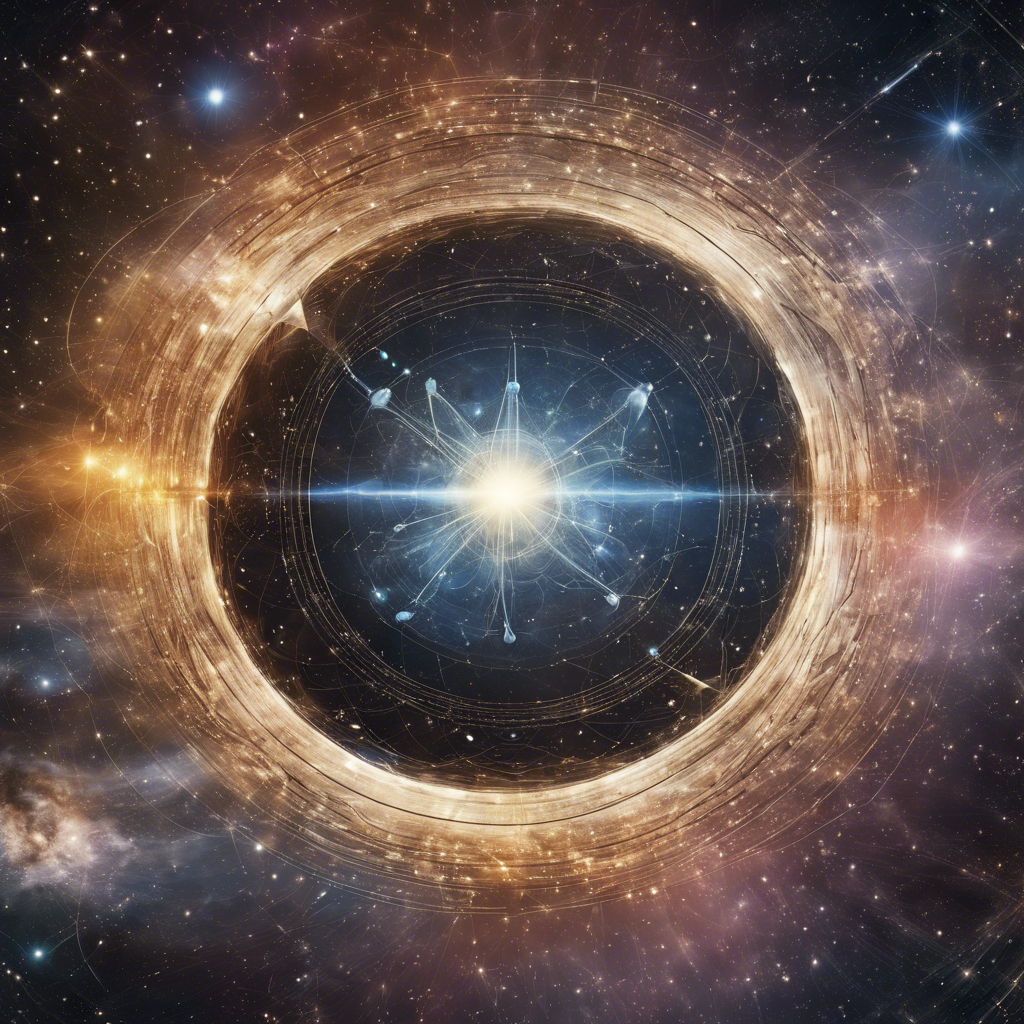Four Princeton University researchers receive prestigious grants to propel advancements in quantum computing, solar cells, laser-based sensing technologies, and inclusive research communities.
Princeton University researchers Nathalie de Leon, Julia Mikhailova, Barry Rand, and Jeff Thompson have been named among the winners of the 2023 Gordon and Betty Moore Foundation Experimental Physics Investigators Initiative awards. The grants, totaling $1,250,000 over the next five years, aim to support groundbreaking research in experimental physics. These four researchers will delve into diverse areas such as quantum computing, advanced solar cells, laser-based sensing technologies, and fostering inclusive research communities. Their work promises to push the boundaries of scientific knowledge and pave the way for transformative advancements in these fields.
Nathalie de Leon: Pioneering Quantum Information Technologies with Diamond
Nathalie de Leon, associate professor of electrical and computer engineering at Princeton, has made significant contributions to the field of quantum information technologies using diamond as a platform. Her groundbreaking work includes the identification of a new color center in diamond that combines long spin coherence times with excellent optical properties, addressing a key challenge in quantum networks. De Leon has also developed innovative techniques to utilize nitrogen-based diamond color centers for nanoscale quantum sensing. Additionally, she collaborates with the Princeton Plasma Physics Laboratory to explore new methods for bulk quantum diamond growth. De Leon’s multidisciplinary approach encompasses quantum optics, atomic physics, condensed matter, device physics, materials science, surface spectroscopy, nanofabrication, and spin physics. Her recent achievement involves the development of a superconducting qubit based on tantalum, setting a world-record for coherence.
Julia Mikhailova: Advancing Optical Harmonic Generation and Quantum Metrology
Julia Mikhailova, associate professor of mechanical and aerospace engineering, focuses on optical harmonic generation in plasmas and solids, as well as the development of ionization-based optical components. Her research explores the potential of optical harmonics as a diagnostic tool for high-energy-density plasmas and new quantum materials. Mikhailova’s work also aims to harness intense ultrafast X-ray radiation generated through optical harmonics to produce entangled X-ray light for quantum metrology. Her previous accolades include a DOE Early Career Award, an Alfred Rheinstein Faculty Award for excellence in teaching and scholarship, and recognition as a Kavli Frontiers of Science Fellow of the National Academy of Sciences.
Barry Rand: Unleashing the Potential of Thin Film Materials
Barry Rand, professor of electrical and computer engineering and the Andlinger Center for Energy and the Environment, investigates the optical and electrical properties of thin film materials to drive the next generation of thin film devices. His research has uncovered novel insights into energy loss in organic solar cells and identified strategies to manage heat in metal halide perovskite LEDs. Rand’s team has also developed a groundbreaking technique that enables nanoparticles to self-assemble, leading to more efficient, stable, and durable perovskite LEDs. His contributions have been recognized with honors such as a DARPA Young Faculty Award, a 3M Nontenured Faculty Award, and a DuPont Young Professor Award.
Jeff Thompson: Exploring Quantum Computing and Communication
Jeff Thompson, associate professor of electrical and computer engineering, is an experimental atomic physicist dedicated to exploring innovative approaches to quantum computing and communication. One of his notable achievements involves the use of ytterbium atoms in optical tweezer arrays, which has proven effective in quantum error correction—a critical hurdle in the development of practical-scale quantum computers. Thompson’s work also centers around erbium ions in the solid state, which hold promise for connecting quantum information systems in low-loss networks over optical fiber. He has received prestigious honors, including the New Horizons in Physics Prize from the Breakthrough Foundation and a Presidential Early Career Award for Scientists and Engineers.
Conclusion:
The recognition of Nathalie de Leon, Julia Mikhailova, Barry Rand, and Jeff Thompson as recipients of the 2023 Gordon and Betty Moore Foundation Experimental Physics Investigators Initiative awards highlights their exceptional contributions to the field of experimental physics. Their research endeavors in quantum computing, advanced solar cells, laser-based sensing technologies, and inclusive research communities hold immense potential for scientific advancements. With the support of these grants, these Princeton University researchers are poised to make groundbreaking discoveries that will shape the future of experimental physics and drive innovation in various scientific disciplines.











